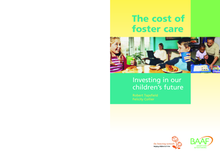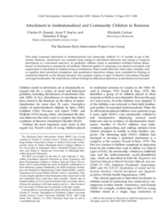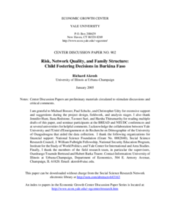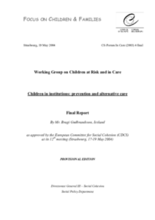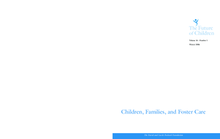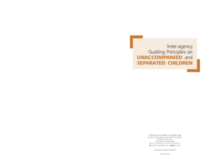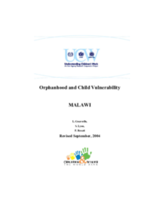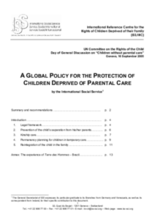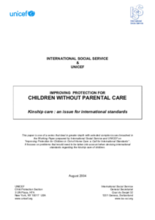Displaying 2101 - 2110 of 2168
This report assesses the expenditure which is required to transform foster care services across the UK, in order to give children in public care the same opportunities to have a successful future as other children. Contains relevant statistics and social welfare system reform recommendations.
This study examined attachment in institutionalized and community children 12 – 31 months of age in Bucharest, Romania.
Analyzes household decisions to send and receive children via fostering. Results show fostering used as a social protection mechanism to cope with income shock (sending) and address family labor shortages (receiving).
A comparative analysis of protection and care systems across Europe, focusing on the use of institutions, alternative forms of care placements, family support services, and the role of social workers in the process of child placement.
In assessing the practice of foster care in the US and its current limitations, this series of articles advocates for the implementation of health assessments for all children in care, support to preserve permanency and assist birth families, comprehensive supports for foster families, specialized services for children in need, increased cultural competency in social work practice, coordinated services across sectors for families in need and comprehensive well being assessments for children in care.
A brief fact sheet on the multilevel support needs of children without parental care. Includes a brief section on statistical data and examples of UNICEF action in several countries around the world.
A comprehensive framework to ensure that the rights and needs of separated children are effectively addressed. Guidelines aim to promote and support preparedness, coordination and good practice based on lessons learned. Addresses all aspects of an emergency from preventing separations, to family tracing and reunification, through to long-term solutions.
A report on orphans and vulnerable children in Malawi. It examines how orphanhood increases vulnerability though decreased access to formal schooling and increased exposure to child labor. Includes detailed statistical tables.
This paper presents a set of global policy guidelines for the protection of children without parental care. It recommends the need for a global understanding of best practices within the legal framework of the UN Committee on the Rights of the Child.
Outlines problems and issues in providing appropriate out-of-home care solutions. Advocates for development of more comprehensive international standards for out-of-home care.

